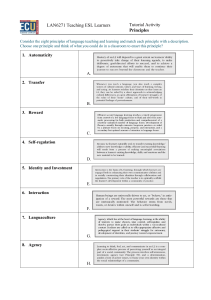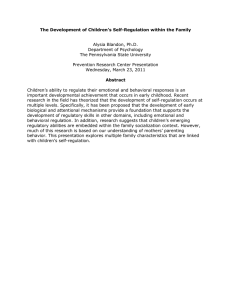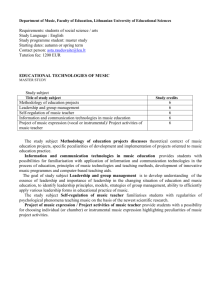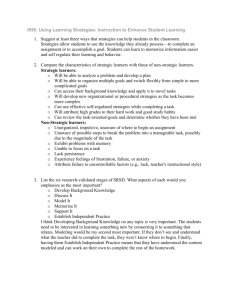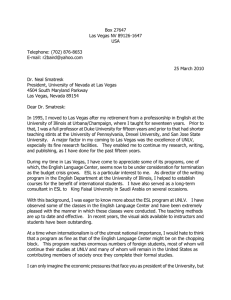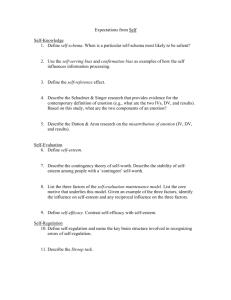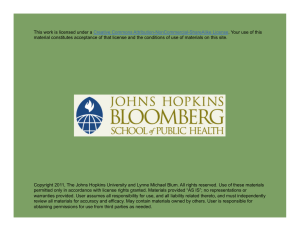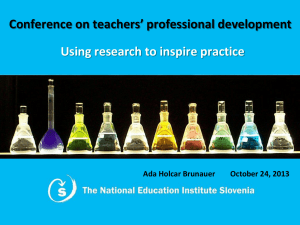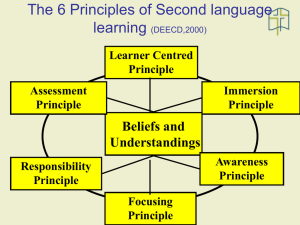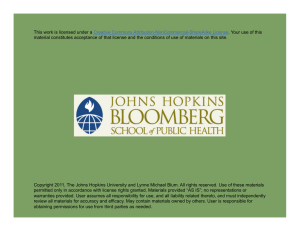McDonald_MPAEA_2014 - Nevada Adult Educators
advertisement
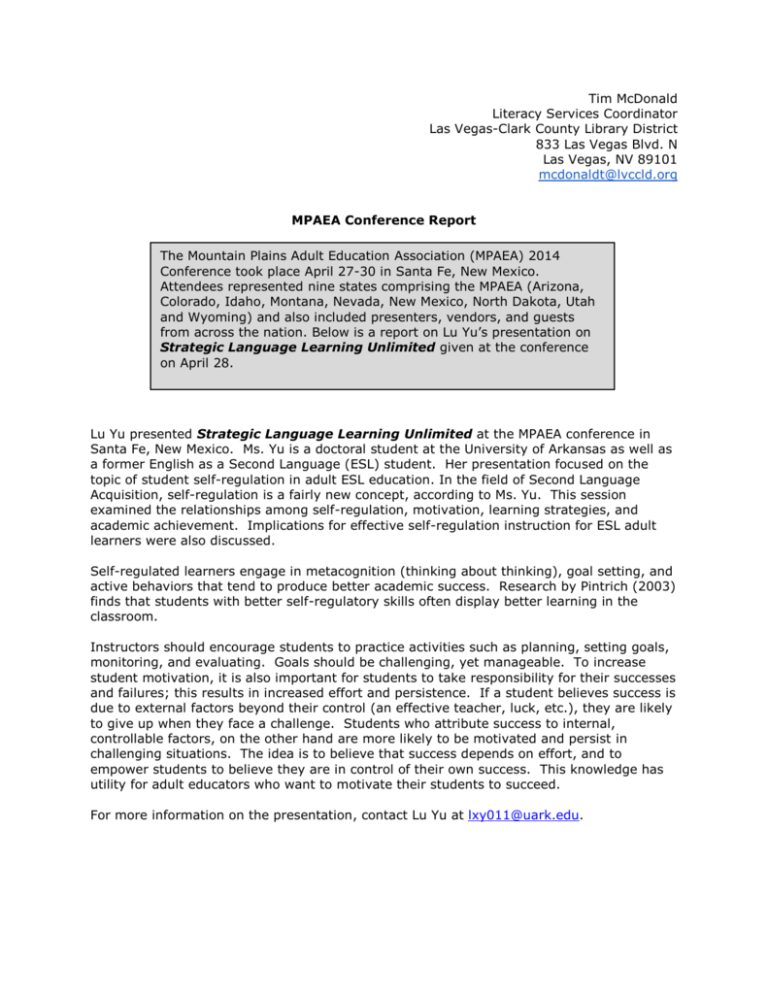
Tim McDonald Literacy Services Coordinator Las Vegas-Clark County Library District 833 Las Vegas Blvd. N Las Vegas, NV 89101 mcdonaldt@lvccld.org MPAEA Conference Report The Mountain Plains Adult Education Association (MPAEA) 2014 Conference took place April 27-30 in Santa Fe, New Mexico. Attendees represented nine states comprising the MPAEA (Arizona, Colorado, Idaho, Montana, Nevada, New Mexico, North Dakota, Utah and Wyoming) and also included presenters, vendors, and guests from across the nation. Below is a report on Lu Yu’s presentation on Strategic Language Learning Unlimited given at the conference on April 28. Lu Yu presented Strategic Language Learning Unlimited at the MPAEA conference in Santa Fe, New Mexico. Ms. Yu is a doctoral student at the University of Arkansas as well as a former English as a Second Language (ESL) student. Her presentation focused on the topic of student self-regulation in adult ESL education. In the field of Second Language Acquisition, self-regulation is a fairly new concept, according to Ms. Yu. This session examined the relationships among self-regulation, motivation, learning strategies, and academic achievement. Implications for effective self-regulation instruction for ESL adult learners were also discussed. Self-regulated learners engage in metacognition (thinking about thinking), goal setting, and active behaviors that tend to produce better academic success. Research by Pintrich (2003) finds that students with better self-regulatory skills often display better learning in the classroom. Instructors should encourage students to practice activities such as planning, setting goals, monitoring, and evaluating. Goals should be challenging, yet manageable. To increase student motivation, it is also important for students to take responsibility for their successes and failures; this results in increased effort and persistence. If a student believes success is due to external factors beyond their control (an effective teacher, luck, etc.), they are likely to give up when they face a challenge. Students who attribute success to internal, controllable factors, on the other hand are more likely to be motivated and persist in challenging situations. The idea is to believe that success depends on effort, and to empower students to believe they are in control of their own success. This knowledge has utility for adult educators who want to motivate their students to succeed. For more information on the presentation, contact Lu Yu at lxy011@uark.edu.
